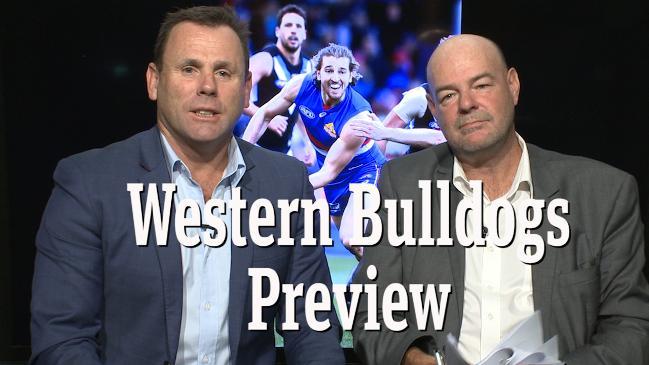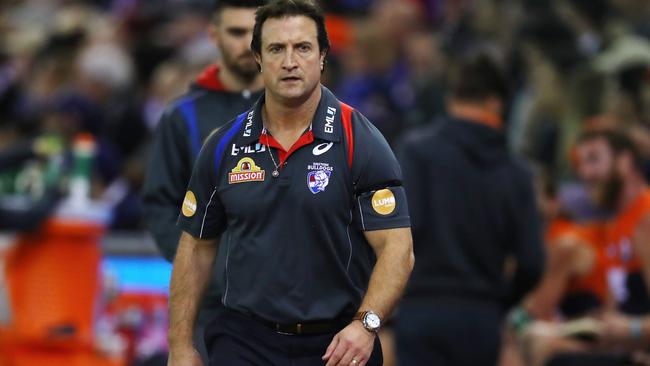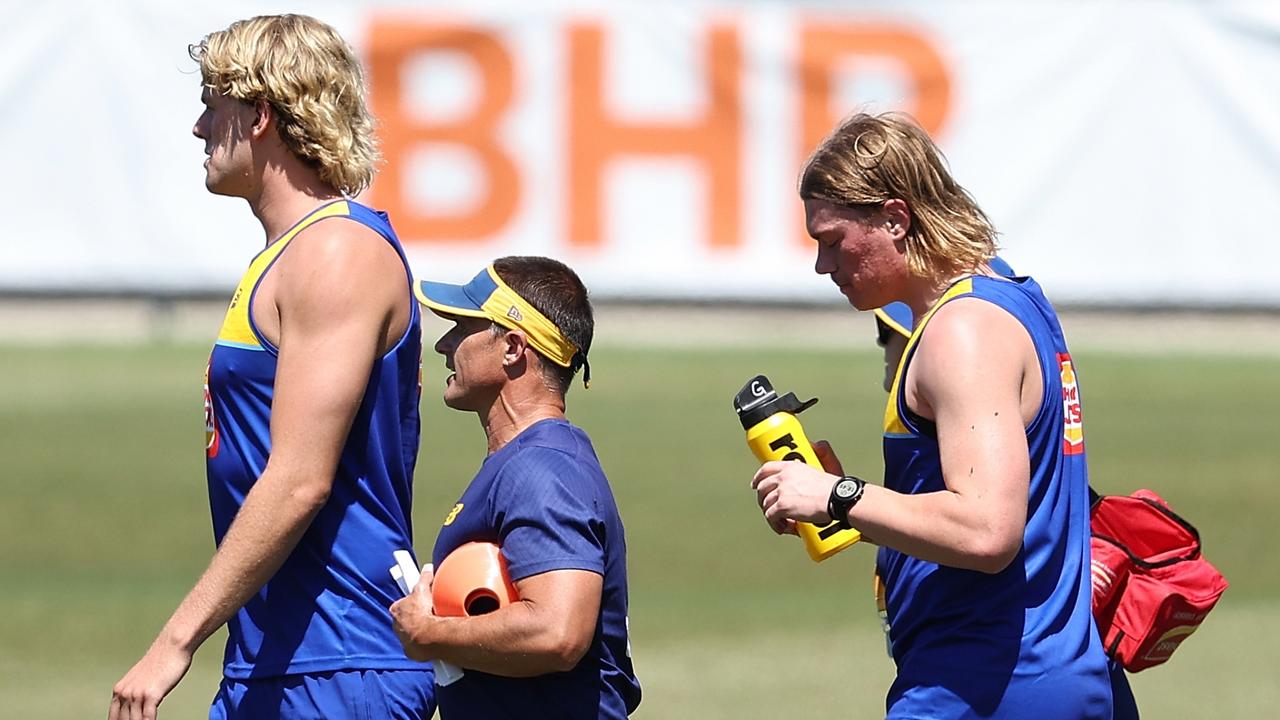Western Bulldogs coach Luke Beveridge explains why runners are so important in the AFL
PREMIERSHIP coach Luke Beveridge has launched an ardent defence of runners as the league considers restricting their use. But why is he so passionate about keeping them in the game?

AFL News
Don't miss out on the headlines from AFL News. Followed categories will be added to My News.
PREMIERSHIP coach Luke Beveridge has launched an ardent defence of runners as the league considers restricting their use.
AFL football operations manager Steve Hocking has been complimentary of the pre-season trial in which runners are allowed on only for 45 seconds after goals are scored.
It still gives clubs opportunities for their runners to pass messages but they cannot linger or talk to multiple players in that time.
COACH CALL: DON’T GET RID OF THE RUNNERS
NO CHANGE: AFL MAKES NO MAJOR CHANGES IN 2018
Beveridge said clubs must prove they do not use runners to block space on the ground.
But he was adamant they had a role to play as a conduit between coaches and players.
“I was quite vocal with Steve Hocking about how important the runners are from a tactical point of view with the coaches,’’ Beveridge said.
“I know they’re experimenting with how much time runners can spend on the ground. We definitely don’t push the envelope with that and break the rules.

“We know that we do it above board, but it’s critical that we don’t lose the operative and the runner being able to go out and deliver coaching messages.”
Asked why runners were so important, Beveridge said coaches often had to deliver multiple messages quickly.
“He’s an extension of the coach, coaches,’’ he said.
“Our runner is used at times to initiate some of the interchange side of things, but different modes that we play in, different roles that need to be changed.
“We’ve got personnel who need clear messages around certain things in the game.
“I’d hate to be having to do that quarter to quarter. You feel like you lose a little bit of control.”
The AFL has in past years introduced rule changes, but this year the runner is the only point of contention.
The issue of head knocks will continue to be front and centre after four players were sidelined in the Richmond and Essendon practice match after knocks. But Hocking said last week a concussion substitute was not the answer.
“I don’t think it’s a bigger issue than it has been previously. It is something from our end we will continue to monitor,’’ he said. “Clubs have a lot of interchange available and make cautious decisions because of the time of the year.
“When you are this early into the season, players aren’t refined when it comes to tackling and bumping. They are finding the rhythm.
“We have got to keep a watchful eye over it because it’s such an important part of our role.”



